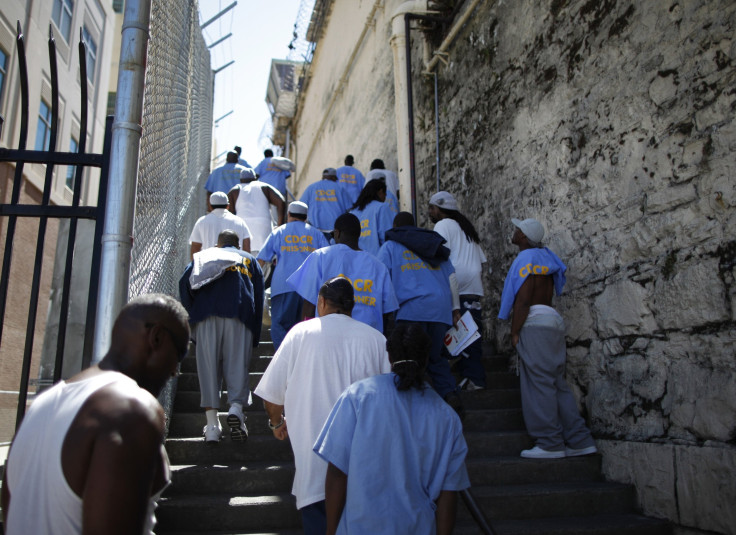Mass Release Of US Prisoners Spells Deportation For Many

By Julia Harte and Julia Edwards
WASHINGTON (Reuters) -- Almost a third of 6,000 federal prisoners scheduled to be freed between Friday and Tuesday, part of a push to reduce America's soaring incarceration rate, will immediately be turned over to U.S. immigration authorities for deportation proceedings.
While this weekend will be a happy occasion for the thousands of inmates who are U.S. citizens and will reunite with their families, many of the roughly 1,780 foreign inmates to be put on the deportation track will leave family members behind in the United States.
Despite Obama administration assurances that the transfer of ex-convicts into the custody of U.S. Immigration and Customs Enforcement (ICE) is a routine occurrence, immigrant advocates worry they may not receive due process as they leave.
Most of the foreign inmates are Mexicans, according to ICE.
Final deportation orders are in effect for 763 of the foreign inmates, who could be deported within days. The rest will be transferred to immigrant detention centers to await orders.
The latest mass release, one of the largest in U.S. history, is a result of retroactive reductions to mandatory minimum sentence guidelines for certain non-violent drug offenses.
After those took effect last November, 23,000 prisoners applied for reduced sentences. Judges granted three quarters of the requests, of which this weekend's releases are a portion, according to the U.S. Sentencing Commission.
Judges granted the most petitions from inmates who were prosecuted in Texas' western judicial district, 1,048 in all.
About a quarter of western Texas inmates cleared for release are foreign nationals, primarily from Mexico, according to Edgar Holguin, a local public defender who has worked for many who are being turned over to ICE custody.
One of Holguin's clients is a 48-year-old Mexican man who has been living in the United States since he was a child. For him, "the Mexico he is going back to is completely different than the one he remembers," Holguin said.
Ricardo Hinojosa, a judge in Texas and ex-vice chair of the sentencing commission, said last year at a public hearing that many of the deportees "will be tempted to come back, and maybe quicker," because many have families in the United States.
As a result, Hinojosa said at the hearing, "We will see them as illegal reentry cases, to some extent, sooner than one would normally see them."
DUE PROCESS CONCERNS
ICE said its handling of the inmates will be no different than the thousands of deportations it oversees weekly.
Under Democratic President Barack Obama, the federal government has deported more immigrants than under any previous administration, more than 2 million in total.
The American Civil Liberties Union on Thursday wrote to ICE chief Sarah Saldaña, urging the agency to ensure that each inmate entering ICE custody in the current release wave gets due process, including the opportunity to consult an immigration attorney and contest their removal in court.
The "stark contrast" between the fates of inmates who are U.S. citizens and immigrant inmates suggests "a schism between DOJ and ICE policies," said the letter.
In a statement, ICE said it will ensure all immigrants subject to deportation "receive the full process they are due while in removal proceedings and ICE custody," including access to phones to contact attorneys, consulates and legal aid groups.
FAMILY REUNION
That "stark contrast" in the fates of inmates can be seen in Ronald Rogers.
Rogers, 56, was 13 years from finishing a 40-year sentence for dealing PCP when a judge last year granted him early release under the new guidelines. In May, Rogers entered a halfway facility in San Diego. On Friday, he'll be a free man.
"I'm thrilled that for the first Thanksgiving in 28 years we'll be able to sit at the table together," said his sister, Nicole Jackson-Gray.
Most U.S. citizens being released have already moved to halfway houses or home confinement, said the Justice Department, which said those getting early release are a small fraction of the 70,000 federal inmates released annually.
(Reporting by Julia Harte and Julia Edwards; Editing by Kevin Drawbaugh and Leslie Adler)
© Copyright Thomson Reuters 2024. All rights reserved.





















